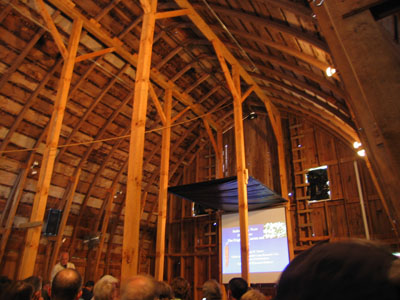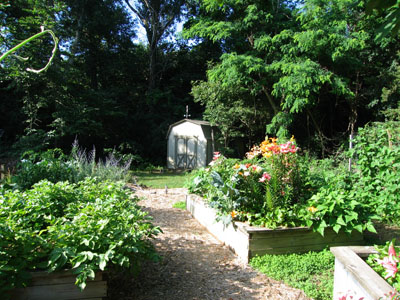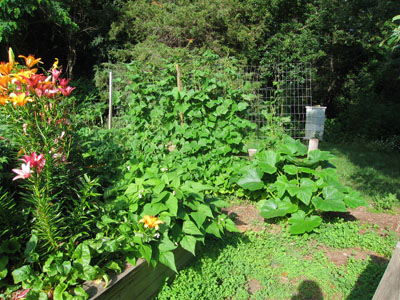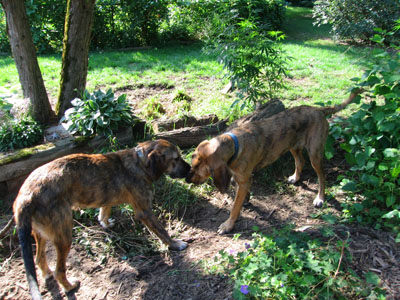Summer Waxing Green Corn Moon
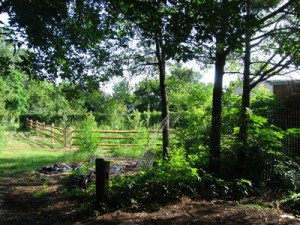
The next meeting of the Woolly Mammoths will be here in Andover. That means it’s theme and subject matter time. The theme will be, Becoming Native to this Place, the title of a book by Wes Jackson of the Land Institute. The subject matter will focus on the gardens, permaculture and the local food (slow food) movement.
At the Seed Savers Exchange conference held two weekends ago in Decorah, Iowa a commercial grower told of his change to the local foods idea. A grower of greenhouse foods for various distributors who took his foods far from northern Iowa, he recounted attending a meeting sponsored by folks whose agenda was local foods. They showed that, due to commodity based agriculture, northern Iowa was a net importer of food. That astounded him. He switched his focus then to growing vegetables for local consumers, working on niche markets like institutions, restaurants and grocery stores in the northern Iowa area.
He didn’t mention Michael Pollan by name but the subject matter was similar to Pollan’s recent work, In Defense of Food. The Woollys have read the Omnivore’s Dilemma and the Botany of Desire. We’ve also looked at the notion of Homecoming and the Great Work by Thomas Berry. This August meeting, only 17 days after Lughnasa, the first fruits festival of the Celtic calendar, will celebrate the Woolly’s interests in home, food and continuity. 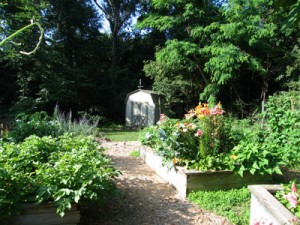
Continuity? Yes. The Woollys have a 20+ year record of perseverance with each other and, by implication, an interest in this place we have chosen to call home for those same number of years.
To the Woollys who read this:
Please choose one of the books or websites indicated and take a look. While looking pick out two things: what surprised you? what would you like to know more about? If you want, also look for something that seems off or misguided to you.

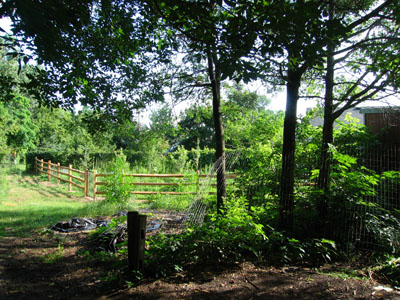 Summer Waxing Summer Moon
Summer Waxing Summer Moon